As we journey through life, our dietary needs and preferences evolve. While some foods may have been staples in our younger years, they may no longer align with our nutritional goals or health objectives after the age of 30. This article explores seven foods that you might want to reconsider, providing insights and alternatives to support a well-balanced and healthy lifestyle.
Instant Noodles
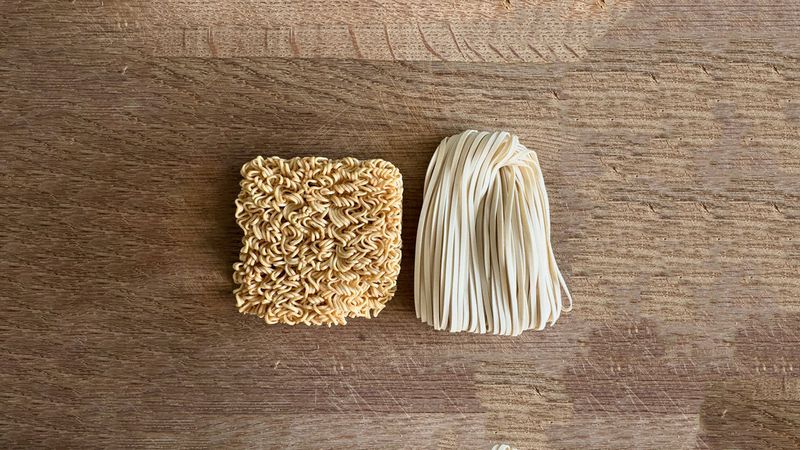
Remember the late-night study sessions powered by instant noodles? While convenient, these sodium-packed meals may not be the best choice as you age. High in preservatives and lacking essential nutrients, they can contribute to long-term health issues.
Consider swapping them for whole grain pasta or homemade vegetable soups. Not only are these alternatives more nutritious, but they also offer a comforting taste.
Did you know? Instant noodles were invented in 1958 and became an instant hit worldwide. Their quick preparation time made them a favorite among students.
Sugary Breakfast Cereals
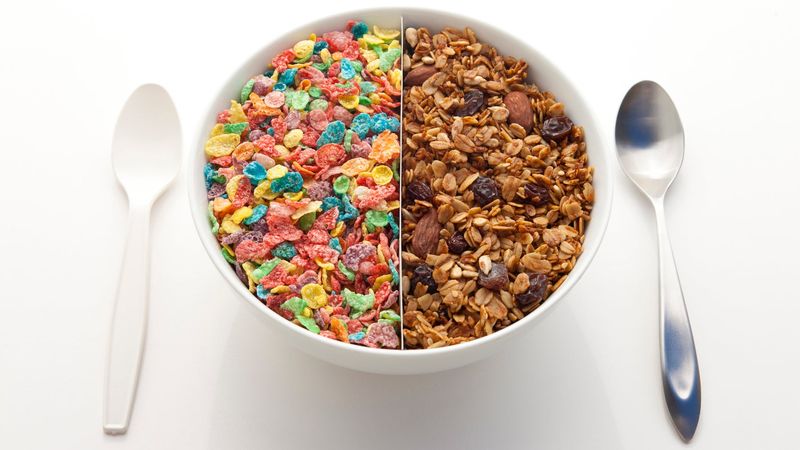
Mornings filled with sugary cereal may evoke nostalgia, but they come with a sugary reality check. Loaded with artificial flavors and sugars, these cereals can spike blood sugar levels and lead to energy crashes.
Opt for oatmeal or whole-grain options with fresh fruits for a fulfilling and wholesome breakfast. These choices provide sustained energy throughout the day.
Fun fact: The first breakfast cereals were created in the late 19th century for health reform purposes. Sugar was only added later to make them more appealing to kids.
Processed Meats

With vibrant colors and flavors, processed meats can be tempting. However, they are often high in sodium, nitrates, and unhealthy fats. These ingredients can increase the risk of cardiovascular diseases as we age.
Instead, try lean meats or plant-based proteins such as tofu or legumes. They offer essential nutrients without the harmful additives.
Did you know? Ancient Romans used a similar technique to preserve meats, but today’s processes introduce more chemicals, emphasizing the need for caution.
Soda and Sugary Drinks

Sipping on a cold soda feels refreshing, but it’s packed with sugars and empty calories. Overconsumption can lead to weight gain and dental issues.
Switch to infused water or herbal teas for hydration without the sugar rush. These alternatives offer a taste of freshness with natural flavors.
Did you know? The first soda was invented in the 18th century, but the sugar content has drastically increased in modern versions, raising health concerns.
Frozen Dinners
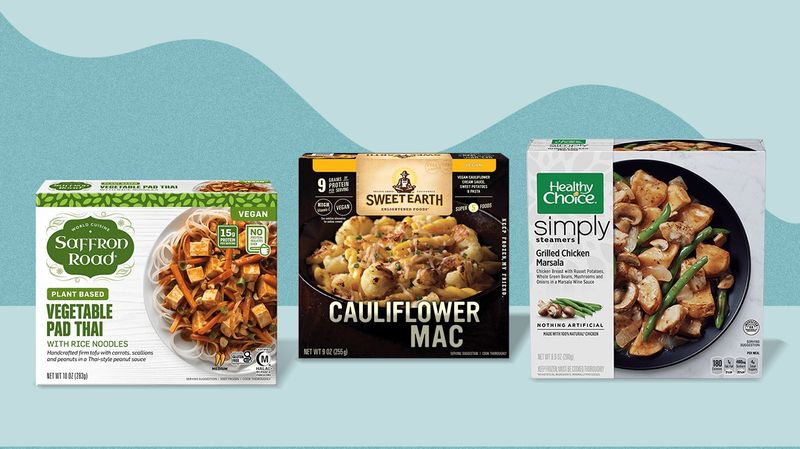
On busy days, frozen dinners might seem like a lifesaver. However, they can be high in sodium and lack fresh ingredients. Often, these meals don’t provide the balanced nutrition needed for a healthy lifestyle.
Consider meal prepping with fresh ingredients to ensure nutritional adequacy. Homemade meals can be both delicious and nourishing.
Fun fact: The TV dinner was introduced in the 1950s as a convenience during post-war America, but now we know fresh is best!
White Bread
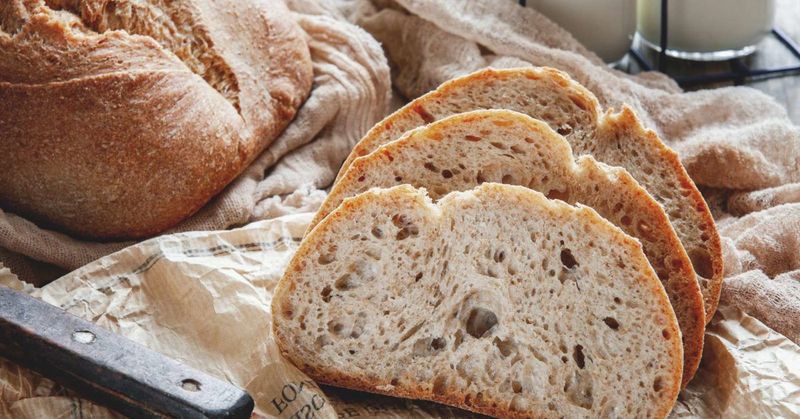
With its soft texture and mild taste, white bread is a staple in many households. However, it lacks the fiber and nutrients found in whole grains. Consuming white bread can lead to insulin spikes and cravings.
Whole grain bread is a healthier alternative, providing more fiber and nutrients. It supports digestive health and maintains energy levels.
Did you know? White bread became popular in the 1920s, but its nutritional value has been debated ever since!
Candy Bars
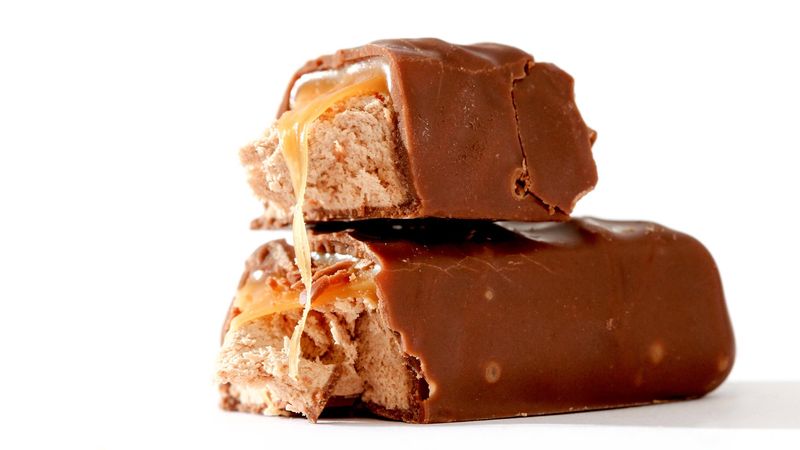
The allure of a candy bar is undeniable, a quick sweet fix that tantalizes the taste buds. However, they are laden with sugars and unhealthy fats, making them a poor choice for regular consumption.
Dark chocolate or fruit-based snacks offer a healthier way to satisfy sweet cravings. They provide antioxidants and essential nutrients.
Fun fact: The first candy bar was created in the late 19th century, and while delicious, moderation is key for a healthy lifestyle.
Microwave Popcorn

Microwave popcorn may evoke memories of movie nights, but it’s not the healthiest snack option. Many brands contain trans fats and artificial flavorings that can be harmful to your health.
Besides, the lining of popcorn bags often contains PFOA, a chemical linked to health issues. Switching to air-popped popcorn with a sprinkle of natural seasoning offers a healthier alternative.
Consider investing in a popcorn maker, which allows for better control over ingredients. Enjoy your favorite flick with a delicious, guilt-free snack that’s easy to prepare.
Flavored Yogurt
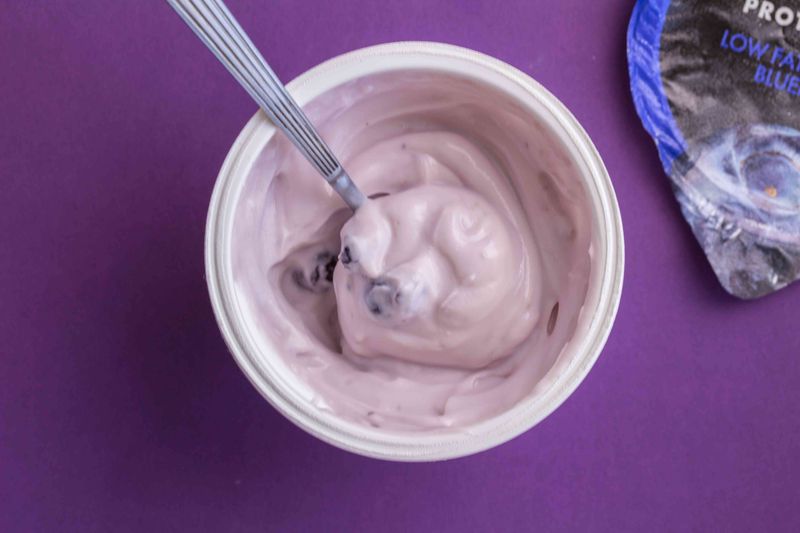
Flavored yogurt might seem like a healthy choice, but it often hides a significant amount of added sugars. These sugars can quickly turn a seemingly nutritious snack into a dessert.
Opting for plain yogurt and adding fresh fruits or honey creates a more wholesome treat. This switch reduces sugar intake and offers more control over flavors.
For those who enjoy variety, experimenting with different fruit combinations or a hint of vanilla extract can make plain yogurt exciting and nutritious.
Granola Bars
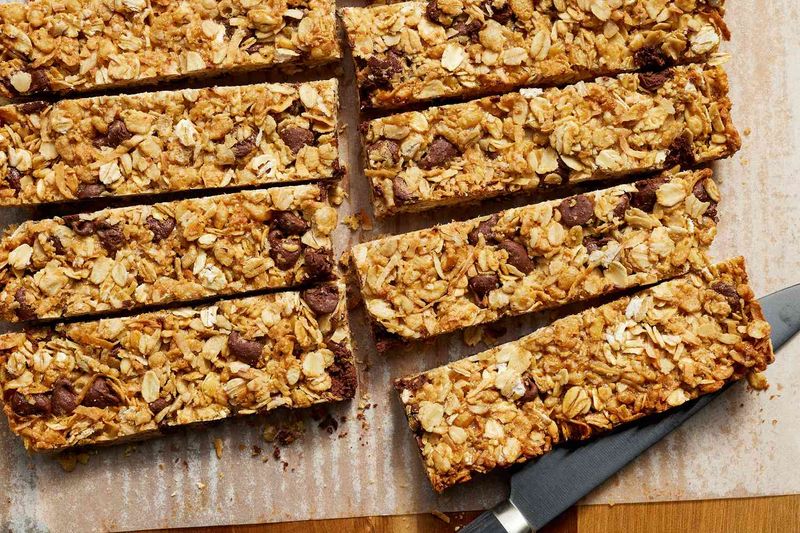
While marketed as a health food, granola bars can be misleading. Many are high in sugars and low in fiber, making them less ideal for sustained energy.
Homemade granola bars can be crafted with wholesome ingredients like oats, nuts, and natural sweeteners. This allows for customization and ensures nutritional value.
Whether for a quick breakfast or an afternoon snack, preparing your own bars offers a healthier, personalized option that can still satisfy cravings.
Margarine

Once hailed as a healthier alternative to butter, margarine is often loaded with trans fats and artificial ingredients. These can contribute to various health issues, including heart disease.
Switching to real butter or plant-based spreads can be a better choice. These options provide natural fats and often contain fewer additives.
When cooking or baking, using these alternatives can enhance flavor without compromising health, making them a sensible choice for everyday meals.
Ketchup

Ketchup is a beloved condiment, but its high sugar and salt content can be concerning. Even small servings can add unnecessary calories.
Exploring homemade ketchup recipes allows for control over ingredients, reducing sugar and salt while enhancing flavor with spices.
This alternative not only tastes better but promotes a more health-conscious approach to dining. Enjoy your fries with a dip that’s both delicious and mindful of your health.
Fruit Juices
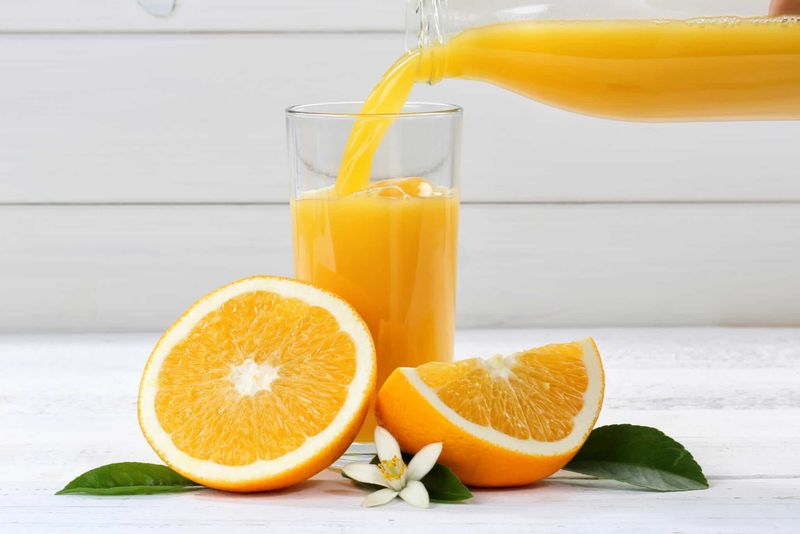
Though fruit juices are often marketed as healthy, they lack the fiber found in whole fruits and are high in sugars. This can lead to spikes in blood sugar levels.
Choosing whole fruits or freshly pressed juices with no added sugar is a better option. These maintain the natural fibers and nutrients that are essential for health.
Enjoying a piece of fruit with your breakfast can provide more satiety and a balanced intake of vitamins and minerals.
Energy Drinks
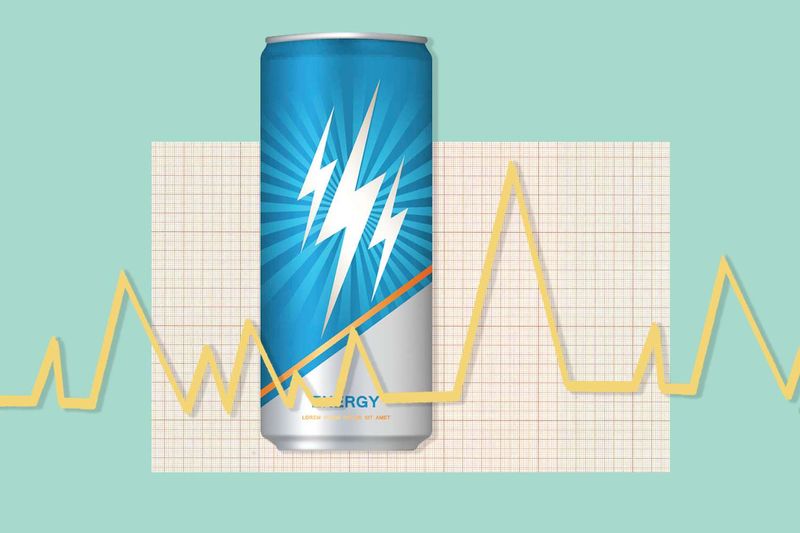
Energy drinks promise a quick boost, but they often come with a hefty dose of caffeine and sugar. This combination can lead to energy crashes and health concerns.
Reaching for water or natural energy boosters like green tea can provide sustained energy without the downsides. These alternatives are gentler on the body and offer additional health benefits.
For active lifestyles, staying hydrated with electrolyte-infused water can support performance without excess sugar or caffeine.
Creamy Salad Dressings
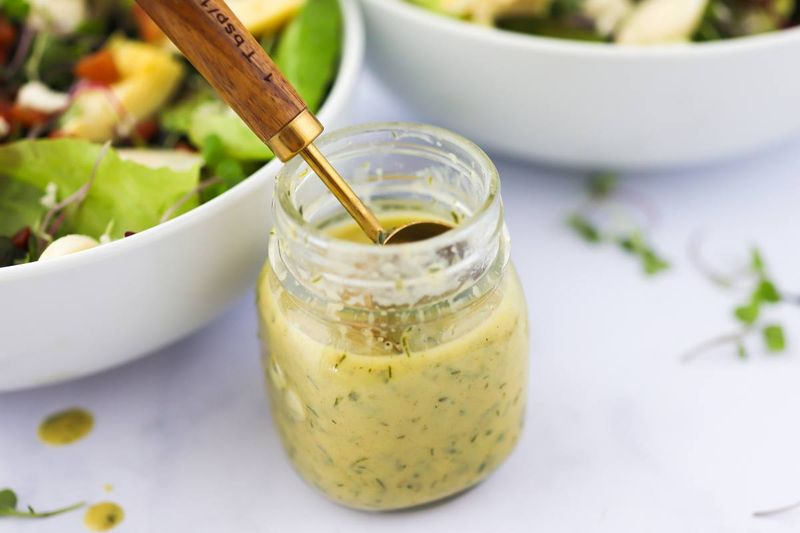
Creamy salad dressings can turn a healthy meal into a calorie-laden dish. High in fats and sugars, they often counteract the benefits of fresh vegetables.
Opting for vinaigrettes or homemade dressings using olive oil and vinegar can enhance flavor while keeping the salad nutritious.
Experimenting with herbs and spices can elevate salads, making them both delicious and healthful. This approach supports a balanced diet without sacrificing taste.
Canned Soup
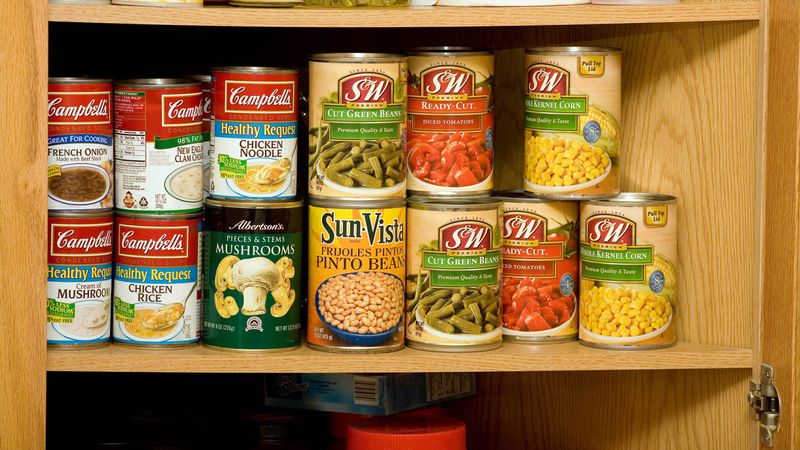
Convenient and comforting, canned soups often contain high levels of sodium and preservatives. These can be detrimental to heart health when consumed regularly.
Preparing homemade soup with fresh ingredients allows for control over salt and additive content. This ensures a nourishing meal that’s flavorful and heart-friendly.
Investing a little time in cooking soup at home can transform a simple dish into a wholesome, satisfying experience.
Cheese Puffs
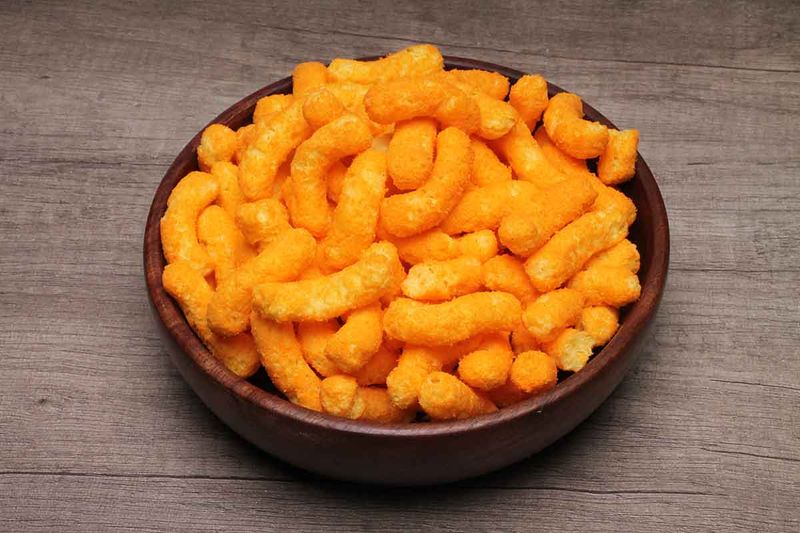
Cheese puffs are a delightful snack, but they offer little nutritional value. High in artificial flavors, colors, and unhealthy fats, they don’t support a balanced diet.
Choosing baked snacks or whole-grain options can satisfy cravings while providing more nourishment. These alternatives often contain less fat and more nutrients.
For those who love cheese, real cheese slices or whole-grain crackers with cheese can be a more satisfying and health-conscious choice.
Packaged Baked Goods
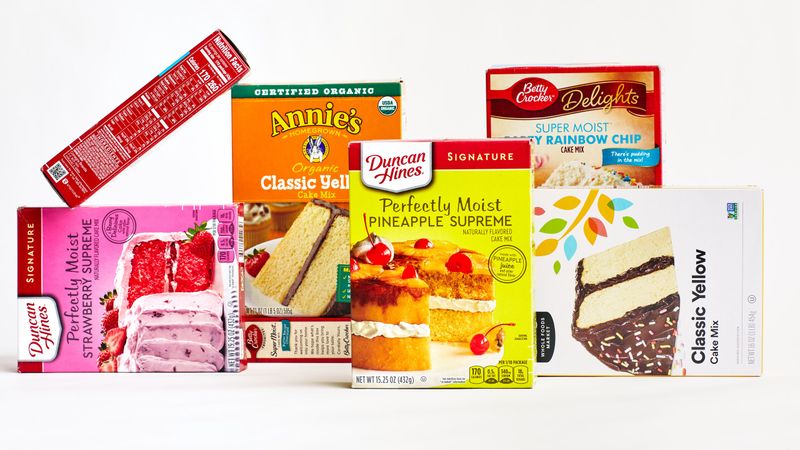
Packaged baked goods, while convenient, are typically high in sugars, unhealthy fats, and preservatives. These can contribute to weight gain and other health issues.
Baking at home allows for healthier ingredient choices, such as whole grains and natural sweeteners, making treats more nutritious.
Enjoying homemade cookies or muffins not only brings satisfaction but also supports better health. This mindful approach to desserts can be both delightful and beneficial.
Cream Cheese
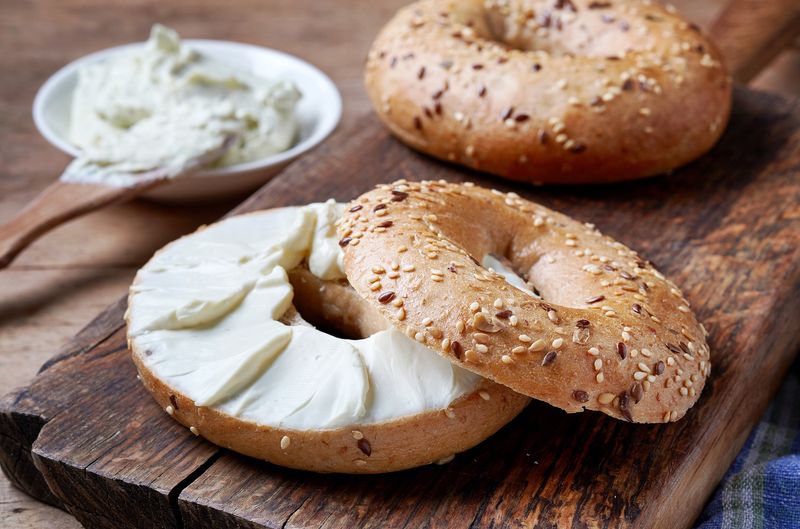
While creamy and versatile, cream cheese is high in saturated fats and calories. Regular consumption can contribute to weight gain and heart issues.
Substituting with lower-fat versions or using Greek yogurt can offer similar texture with added health benefits. These alternatives are rich in protein and provide a lighter option.
Creating spreads with fresh herbs can enhance flavor, making breakfasts enjoyable and mindful of health.
Sugary Coffee Drinks

Sugary coffee drinks are popular pick-me-ups but often contain excessive sugars and calories. They can lead to energy spikes and crashes.
Opting for black coffee or adding a splash of milk can provide caffeine boosts without the sugar overload. These choices support energy balance and reduce calorie intake.
For those who love flavors, experimenting with spices like cinnamon can enhance coffee without added sugars, maintaining the joy of a morning ritual.
Breakfast Sausages

Breakfast sausages are a classic morning staple, yet they are typically high in saturated fats and sodium. Regular consumption may affect heart health.
Switching to leaner protein sources like turkey or chicken sausages can offer similar flavors with fewer health risks. These alternatives are lower in fats and can be a better fit for a balanced diet.
Cooking with herbs can enhance taste, making breakfast both enjoyable and beneficial for well-being.
Pre-Packaged Smoothies
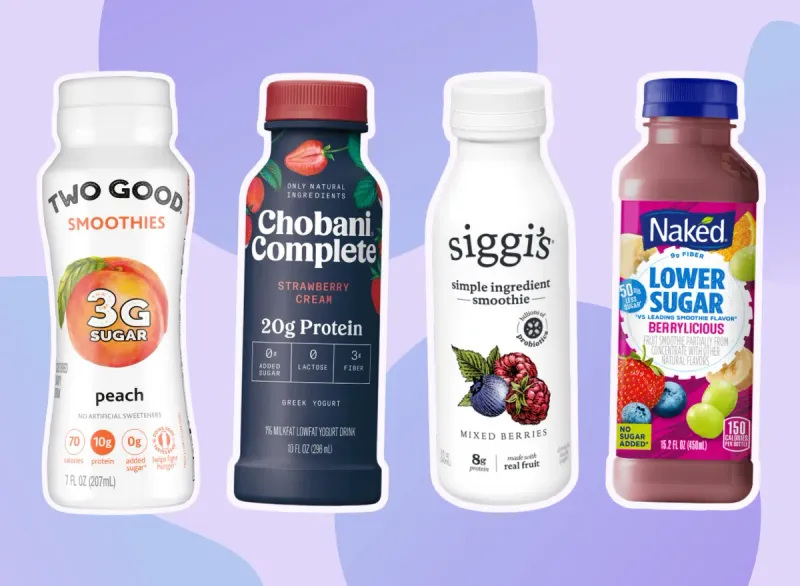
Pre-packaged smoothies may seem convenient, but they often contain added sugars and lack the fiber of whole fruits. This can lead to increased calorie intake without the benefits of fresh ingredients.
Blending your own smoothies at home with a mix of fruits, vegetables, and seeds ensures a nutritious and balanced drink.
This approach allows for creativity and control over sugar content, making the morning routine both refreshing and health-conscious.
Leave a comment